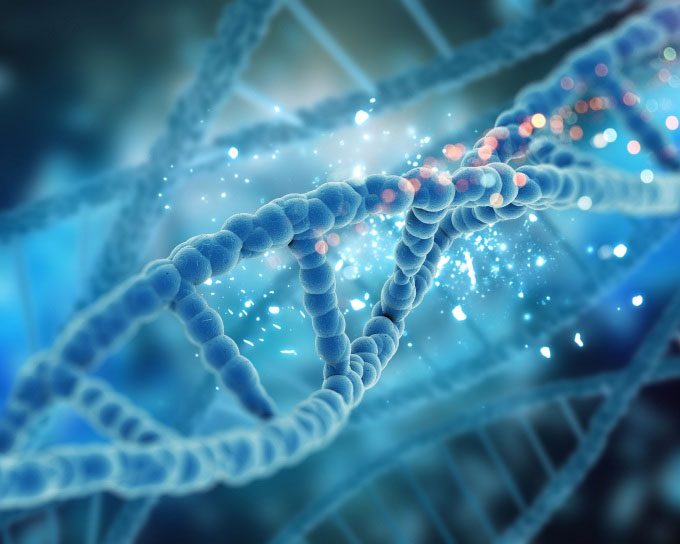Breast, ovarian, and prostate cancers are associated with hereditary mutations in the BRCA1 and BRCA2 genes.
Genetic predisposition increases the risk of developing cancer due to mutations in specific genes. These variants are often inherited from parents. However, not everyone with a certain inherited gene mutation will develop cancer. The genetic predisposition can be high or low, depending on the specific gene and other risk factors.
Breast and Ovarian Cancer: Mutations in the BRCA1 and BRCA2 genes increase the risk of developing breast and ovarian cancer.
Colorectal Cancer: In some cases, colorectal cancer may be caused by Lynch syndrome, which accounts for about 3% of these cancer cases. Lynch syndrome is an autosomal dominant genetic disorder where patients have one or more mutations in genes that disrupt the mismatch repair process of DNA, including MLH1, MSH2, MSH6, PMS2, and EPCAM.
Individuals with Lynch syndrome are more likely to develop colorectal cancer, especially at a younger age. Women diagnosed with Lynch syndrome are at a higher risk of endometrial and ovarian cancer. Both men and women with Lynch syndrome may also have an increased risk of stomach, liver, kidney, brain, and skin cancers compared to the general population.
Prostate Cancer: Approximately 5-10% of prostate cancer cases are hereditary. Mutated genes that can cause this cancer include BRCA1, BRCA2, HOXB13, ATM, and DNA mismatch repair genes associated with Lynch syndrome.

Genetic mutations related to cancer. (Image: Freepik).
Pancreatic Cancer: About 3-5% of pancreatic cancer cases are due to hereditary syndromes, and 5-10% are familial (family history of the disease).
Pancreatic cancer is associated with gene mutations such as BRCA1, BRCA2, ATM, PALB2, CDKN2A, TP53, and Lynch syndrome. Individuals with family members affected by Peutz-Jeghers syndrome, which is linked to the STK11 gene and can lead to gastrointestinal polyps and skin freckles, also have a higher risk of pancreatic cancer and other malignancies.
Melanoma: A small number of melanoma cases are hereditary, associated with a high rate of disorder due to mutations in the CDKN2A gene.
Sarcoma: This is a rare and heterogeneous group of tumors that arise in connective tissues. The development of this cancer is related to genetics and often occurs in childhood due to mutations in the RB1 or TP53 genes associated with retinoblastoma.
Kidney Cancer: Genetic DNA changes can cause kidney cancer, such as mutations in the VHL gene, a tumor suppressor gene. Other tumor suppressor genes like FH (related to leukemia), FLCN (Birt-Hogg-Dubé syndrome), SDHB, and SDHD (familial kidney cancer) increase the risk of kidney cancer.
Stomach Cancer: About 1-3% of stomach cancer cases are due to mutations in the CDH1 gene. This mutation increases the risk of stomach cancer and lobular breast cancer. Individuals inheriting this mutation have a higher risk of developing stomach cancer at a young age.
Below are situations where genetic testing may be considered to assess cancer risk.
- Individuals with a mother, father, sibling, or child diagnosed with cancer.
- Multiple relatives on one side of the family (maternal or paternal) diagnosed with cancer.
- A group of cancers in the family associated with a single gene mutation (e.g., breast, ovarian, and pancreatic cancer).
- A family member diagnosed with multiple types of cancer.
- Family members diagnosed with cancer under the age of 50.
- Relatives with cancer associated with a rare hereditary cancer syndrome.
- A family member diagnosed with a rare cancer, such as breast cancer in men.
- A clinical finding related to hereditary cancer, such as multiple colorectal polyps.
- One or more family members or relatives carrying a known gene mutation that increases cancer risk identified through genetic testing.


















































